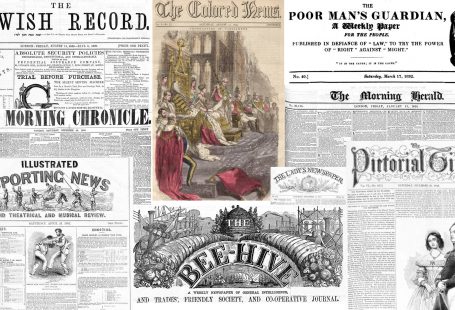
While researching A Visitor’s Guide to Jane Austen’s England, author Sue Wilkes discovered an amazing romance which could have appeared in an Austen novel.
We love hearing about what you’re finding in the newspapers. Tell us about your own discoveries in the comments section below.
**************
Heiress Augusta Nicholson, a most intrepid young lady, showed great ingenuity when she fell in love with handsome John Giles, a penniless comedian.
Miss Nicholson was a ward of chancery and would inherit £14,000 when she came of age. Augusta’s mother was dead, and her father Col. Nicholson had remarried. She seemingly did not get on well with her stepmother Mrs Nicholson.

The Hampshire Chronicle revealed how the lovers met
In the autumn of 1809, while her father was away, Augusta and her stepmother visited fashionable Tunbridge Wells. A report in the Hampshire Chronicle reveals that Giles gallantly carried Augusta’s library books home one day and a whirlwind romance began.
The very next evening Augusta and her stepmother went to the theatre to watch Giles perform. They sat in a box near the stage and unseen by her unsuspecting stepmother, Augusta dropped a letter to Giles in which she ‘said that she would marry him’.

Hampshire Chronicle – Monday 13 November 1809
Image © THE BRITISH LIBRARY BOARD. ALL RIGHTS RESERVED.
When Mrs Nicholson discovered their courtship she banned her stepdaughter from going out. Undaunted, Giles smuggled letters to Augusta through the front door key-hole, and every morning for five weeks, Augusta got up before 5am and chatted to him from her bedroom window.
Augusta Nicholson and John Giles eloped to London in 1809
The lovers were desperate to elope, but according to the Hampshire Chronicle, Giles ‘was destitute of the most needful article, money, for carrying on such an exploit’.
After borrowing £30 from a fellow thespian, Giles hired a chaise-and-four and ‘went for his darling’. Like Lydia Bennet and George Wickham in Jane Austen’s Pride and Prejudice, they fled to London, where they could hide easily.

Hampshire Chronicle – Monday 13 November 1809
Image © THE BRITISH LIBRARY BOARD. ALL RIGHTS RESERVED.
A wedding ring was purchased, and the banns for their marriage read twice at Marylebone Church. At the runaways’ lodgings in Westmorland Place, Augusta made Giles repeatedly swear on the Bible that he would never marry anyone else.
A ‘frantic scene’ and a tragic end
The article from the Hampshire Chronicle went on to reveal that the Nicholson family solicitor tracked Augusta and Giles down. It reported that ‘a frantic tragic scene took place…both lovers rushed into each other’s arms, and swore attachment, beating their heads, and running about the room distracted’.
The game was up. Giles was in real trouble because Augusta was a ward of court, and he was briefly committed to the Fleet prison. The following spring, Augusta finally married John and they had a little boy. This marriage announcement appeared in the Kentish Gazette:

Kentish Gazette – Friday 06 April 1810
Image © THE BRITISH LIBRARY BOARD. ALL RIGHTS RESERVED.
The story had a tragic finale. I found a later report in the Hampshire Chronicle, which revealed that Augusta died shortly before she came of age. The estate went to her brother Captain Nicholson, but he died before he could enjoy it, so Augusta and Giles’ child became heir to her fortune.

Hampshire Chronicle – Monday 18 November 1811
Image © THE BRITISH LIBRARY BOARD. ALL RIGHTS RESERVED.
**************
Visit Sue’s blog to read more about her research and order a copy of A Visitor’s Guide to Jane Austen’s England.





1 comments On Thrilling elopement story found in 19th-century newspapers
The tragic death of Phil Hughes, the Australian cricketer, sent me searching in your archives for similar incidents – of which, thankfully, there have been very few over many years in cricket. However, I came across one as long ago as 1870 when a Nottinghamshire county player, George Summers, was hit on the head by a fast rising ball and subsequently died. By one of those curious twists of fate he was 25 years old, the same age as Hughes.
This report from the Nottinghamshire Guardian of 24 June 1870 tells us that Summers was playing for Notts against an MCC team when he was violently struck on the head by the first ball he received in the second innings, a short-pitched delivery bowled by a Derbyshire player called Platts. Of course, in those days he wouldn’t have been wearing a helmet and possibly not even a cap.
Roy Stockdill, Hertfordshire